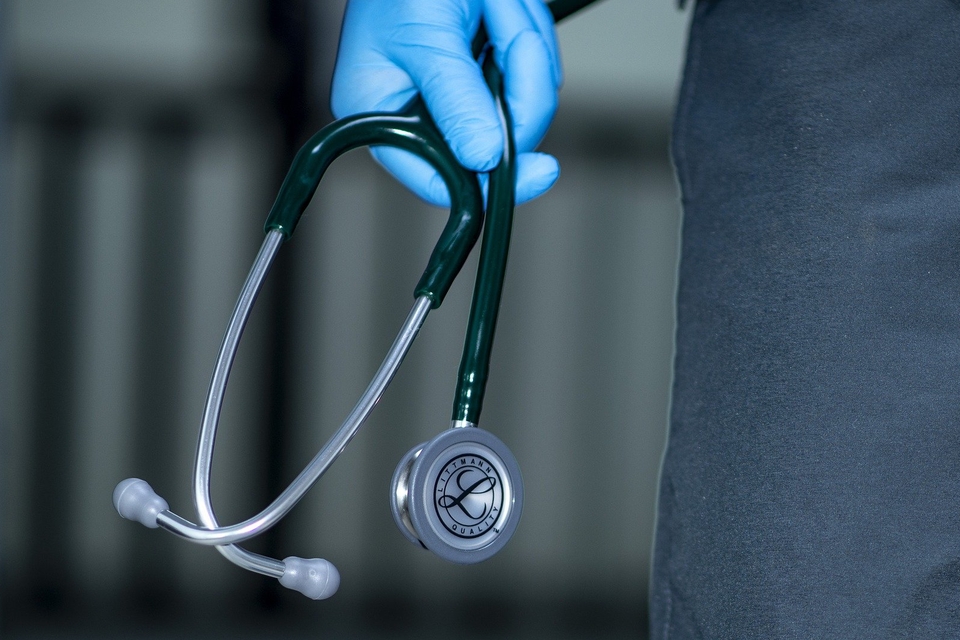In about 14 percent of cases, it can be traced back to problems with their own immune system.
Everyone knows that the coronavirus is especially dangerous for elderly people and people who already have certain health problems. But every now and then we see that relatively young and previously completely healthy people end up in intensive care and even die due to the virus. What’s going wrong in their bodies? Scientists have figured it out and come up in two studies with two causes that together can explain about 14 percent of the cases in which otherwise healthy people become deathly ill due to SARS-CoV-2.
Two studies
In the first study, the scientists show that just over 10 percent of healthy people who become seriously ill from the virus produce antibodies that attack their own immune system, not the virus. And at least 3.5 percent of healthy people who become seriously ill with the virus have genetic mutations that hinder an effective response of the immune system to the virus. That can be read in the magazine Science.
Type I Interferons play a key role in both studies. Interferons are proteins that are part of the so-called intrinsic and innate immune system. They come into action – even before the adaptive immune system in response to the presence of virus particles, for example, starts to produce antibodies – and play an important role in strengthening cell defense. The term type I interferons refers to a set of 17 proteins that in this way are of great importance during a viral attack for the protection of cells and thus the body. “Type I Interferons are small proteins that can be produced at a rapid rate by many different cell types after infection by a pathogen – such as a virus,” says researcher Stuart Tangye. And these proteins are also of great importance in the fight against SARS-CoV-2, according to experiments in which researchers released the virus on cells that did not produce these proteins or did not produce them sufficiently. Compared to cells that did have the proteins ready, these cells died much more often – and remarkably quickly. These interferons are therefore very important. And the two new studies now show that a flaw around these type 1 Interferons underlies life-threatening forms of COVID-19.
Research I.
So it points first investigation – performed in 987 critically ill COVID-19 patients – showed that 10.2 percent of the patients had neutralizing autoantibodies that did not deal with the virus, but with the type I interferons. During their illness this led to a low or even undetectable concentration of these proteins. “And what’s interesting is that 94 percent of the patients with these neutralizing autoantibodies were male. It may help explain why men are more prone to a severe form of COVID-19. ”
The good news is that the autoantibodies don’t seem to be very common. This is evident from a study among 1227 completely randomly selected healthy people. Only four of them had the auto-antibodies. Research also shows that these autoantibodies could already be detected in some people before the virus infection. And in others, early in the infection, before the immune system had time to take action. “All of this strongly suggests that these autoantibodies are the underlying reason that some people become seriously ill and are not a consequence of the infection,” emphasizes researcher Jean-Laurent Casanova.
Research II
In the second examination scientists looked at 659 seriously ill corona patients. “They studied the genes that encode 13 proteins that are very important when it comes to protecting against viral infections,” says Professor John Christodoulou, not involved in the study, but with one of the consortiums that contributed to the study. “And they found that 3.5 percent of patients with severe COVID-19 had some changes in these genes.” And those gene mutations – not found in a control group of 534 corona patients with no symptoms or mild symptoms – prevent the immune system from producing or responding to Type I Interferons.
Enigmatic
“The different ways SARS-CoV-2 affects people are puzzling,” said Christodoulou. “The virus can cause a symptom-free infection and disappear quietly or kill people in a matter of days.” Scientists would of course like to know why the disease course is so different and these studies help with that. “Together, they show that faults in the protective interferon system underlie as many as 14 percent of critically ill COVID-19 cases,” says Professor Paul Hertzog.
More research is of course badly needed. “It is likely that follow-up studies will reveal further defects that prevent the body from initiating an effective antiviral response,” said Hertzog. Such studies are important for several reasons; in this way they can lead to a better understanding of the disease and to finding an effective treatment. “The results provide us with compelling evidence that type I interferon disruption is often the cause of life-threatening forms of COVID-19,” Casanova said. “And these problems can – at least in theory – possibly be treated with existing medications and interventions.”
–
Keep amazed ✨
Receive the most beautiful space photos and interesting popular science articles every Friday. Get the free Scientias Magazine together with 50,000 others.


